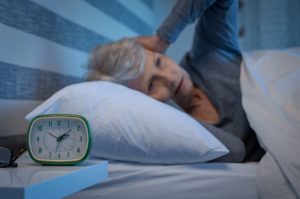 If you’ve cut out evening caffeine and alcohol but still can’t sleep, you might be only halfway there. A growing collection research is showing diet can play a bigger role in sleep quality than previously thought. What you eat—and what you don’t—may influence your likelihood of having high-quality, restorative sleep.
If you’ve cut out evening caffeine and alcohol but still can’t sleep, you might be only halfway there. A growing collection research is showing diet can play a bigger role in sleep quality than previously thought. What you eat—and what you don’t—may influence your likelihood of having high-quality, restorative sleep.
Evidence is showing that there is an increasing association between poor quality food choices and sleep trouble. One often unanswered question, however, is whether poor sleep leads to bad food choices or vice versa. There is research, for example, that people who report low-quality sleep consume more calories than those who sleep well, often reaching for more high-carb, high-fat processed foods when hunger hits.
Advertisement
But a small, recent study conducted by Columbia University in New York indicates that food choice may influence sleep more than sleep influences what you eat. Researchers fed 26 healthy adults a controlled, healthy diet based on FDA guidelines (low fat/saturated fat, fruit, vegetables, whole grain, lean protein), and measured their sleep. On another day, they let participants choose their own food and again monitored sleep duration and quality.
On the day that food was unregulated, participants ate 33-percent more saturated fat and 500 more total calories. They also took twice as long to fall asleep.
Studies have shown saturated fat and sugar are the leading nutrients that contribute to poor sleep. Diets high in saturated fats can result in fewer hours of restorative sleep, while high sugar diets (more than the RDA) can increase the chances of micro-awakenings, slashing the likelihood of a good night’s shuteye.
Building a healthy diet high in fruits and vegetables, whole grains, plant-based foods, and lean proteins might positively influence sleep. High fiber intake—28–38 grams or more—might keep people in a state of restorative sleep for longer than normal periods. On the other hand, limiting sugar, saturated fat, and processed food might help with sleep.
Advertisement
Further, kiwi and tart cherry juice may have specific benefits for sleep. One study showed that eating kiwi may help people fall asleep faster and stay asleep longer, while another showed that tart cherry juice has the same effect. These benefits may have to do with their respective levels of serotonin and melatonin.
Quality sleep is a pillar of good health. Monitoring what you eat, or don’t eat, can influence how much, and what kind, of sleep you get.
Also read:
- Essential oils for sleep: 13 ways to get the best sleep ever
- Yoga for sleep: Simple yoga exercises for restful sleep
- Effects of sleep deprivation
